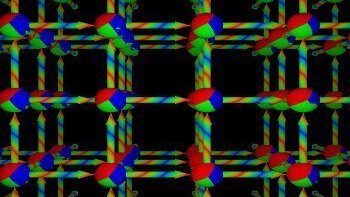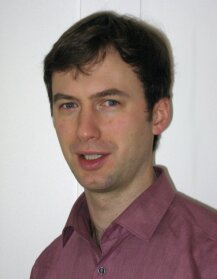Physics beyond the standard model
The standard model of particle physics describes all known elementary particles and their interactions except gravity. In this sense it is the fundamental description of the know physical laws of nature. In our research we investigate theories that go beyond the standard model. The first main motivation is the extension and completion of the theory. One example for the shortcomings of the standard model is the missing explanation for the dark matter found in astronomical observations. Interesting candidates for an extension of the standard model, which are subject of our investigations, are based on new strong interactions. The second important motivation for our studies of strong interactions beyond the standard model is to obtain a better understanding of strongly interacting theories in general.
Strong interactions of Quantumchromodynamics
Among the interactions of the standard model, the strong force has a number of particular interesting features. Due to the phenomenon of confinement, no elementary charges of this force are observed at low energies. Instead a pletora of complex bound states with nontrivial interactions emerge from a simple description at high energies in terms of Quantumchromodynamics. Up to now, no analytic derivation of these low energy features from the fundamental theory has been found. However, this connection between fundamental theory and experimental observations has been established to high accuracy with the numerical simulations on a space-time lattice. The aim of our investigations is to establish new approaches for an analytical understanding by considering more general realizations strong interactions. In addition we are working on extensions and improvements of the numerical methods.
Supersymmetry on a space-time lattice
Supersymmetry is an important tool for both, the derivation of possible extensions of the standard model and to obtain a better understanding of strong interactions. The extended symmetry allows to obtain additional insights into the dynamics of the theory based on analytical methods. To verify and extend these approaches, numerical simulations of supersymmetric gauge theories are essential. We are working on methods that allow such kind of numerical simulations.
Gauge/Gravity duality
Our investigations of strongly coupled supersymmetric gauge theories are connected to the important question about the theoretical description of quantum gravity. This connection is established due to dualities between gauge theories and gravity like the AdS/CFT correspondence. We are simulating different theories that allow an investigation of this relationship.


